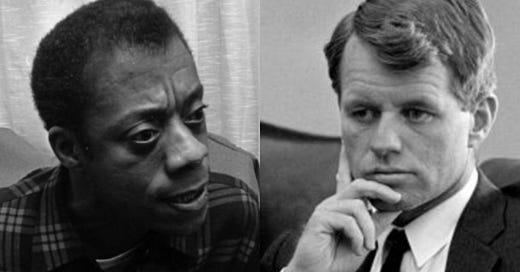Another white supremacist mass killing, thoughts, prayers and conversations
Banned Histories of Race in America
It is time, once again, for us all to behave as though yet another white supremacist domestic terrorist attack has nothing to do with race. Earlier this week a white supremacist attempted to get onto the campus of Edward Waters University, an HBCU in Jacksonville, Florida. He refused to identify himself and was turned away by security. Then he went to the local Dollar General store where he murdered three Black people and turned the gun on himself.
All of the usual thoughts and prayers are being yawned out by the usual assholes and the old standard “We Just Need to have More Conversations” is being sung like funeral karaoke. A lot has been said about the thoughts and prayers thing, but the “need” to have more conversations makes me angrier than I can properly communicate. Every time I hear that I want to ask for the point of these conversations? Is it to compromise? At which imaginary middle are we supposed to meet? How many of us need to be killed for the other side to feel as though the thoughts, prayers and conversations were really worth it?
I can rant for a long time about this, but instead I think it’s important to hear what history has to say about these conversations. We don’t need to go that far back, really. Just last year a Black man named Grady Lewis saw a young white man acting strange at a supermarket in Buffalo, so Grady engaged him in conversation. The next day that strange young white man came back to that Buffalo supermarket and livestreamed his own mass shooting in which he murdered ten Black people.
Maybe we can go back to 2015 in Charleston, South Carolina when another young white supremacist with a gun interrupted a Bible study the Emanuel Methodist Episcopal Church. The white supremacist chose that church because it is one of the oldest Black churches in the country. The parishioners talked with him for a long time. They prayed with him and for him. Then he murdered nine of them.
But maybe these aren’t the right conversations. Maybe it’s got to be more of a meeting of the minds involving heads of state and artists and public intellectuals. For that, let’s go all the way back to 1963. Then-Attorney General Robert F. Kennedy invited James Baldwin to have a conversation about how to improve race relations. Baldwin brought along his brother David and a who’s who of Black public figures of the era: Lena Horne, Harry Belafonte, Dr. King’s lawyer Clarence Benjamin Jones, A Raisin in the Sun-playwright Lorraine Hansberry, founder of Harlem Youth Opportunities Unlimited Kenneth Clark, Education Director of the NAACP June Shagaloff, Director of the Chicago Urban League Edwin C. Berry and Freedom Rider Jerome Smith, who had recently been attacked and jailed in Mississippi.
The conversation started with RFK spouting some bullshit about how the Justice Department had been supporting the civil rights movement. As people were dying in the streets RFK wanted to be thanked. Jerome Smith was having none of it and went off on RFK, "I've seen you guys [referring to the Justice Department] stand around and do nothing more than take notes while we're being beaten."
The two started arguing and RFK turned to the more famous people in the room for support. Lorraine Hansberry said to RFK, "You've got a great many very, very accomplished people in this room, Mr. Attorney General. But the only man who should be listened to is that man over there."
RFK didn’t want to, though. He pulled out the classic cliché about how his family of Irish immigrants had bootstrapped themselves and blah blah blah. David Baldwin pointed out that Black folks had been here a lot longer and had been blocked from achieving similar progress.
The conversation went on like this for a few hours and eventually Lorraine Hansberry walked out and everyone else followed. You know what RFK did after that? He put more FBI surveillance on everyone in the room. There was a directive given to find information on Baldwin "particularly of a derogatory nature."
RFK would later say of the conversation, “They don't know what the laws are—they don't know what the facts are—they don't know what we've been doing or what we're trying to do. You can't talk to them the way you can talk to Martin Luther King or Roy Wilkins. They didn't want to talk that way. It was all emotion, hysteria—they stood up and orated—they cursed—some of them wept and left the room.”
So, this. This is why the answer is not “more conversations”. The answer is white people learning about their history and fixing their systems. Until that happens, you can put your conversations right beside your thoughts and prayers.





Thanks for the historical notes on RFK embarrassing himself with his inability to listen to the folks impacted. And this wealthy lawyer playing the Irish card? Smh
I am convinced that the proliferation of guns in the U.S. is so that we will have a civil war instead of the revolution we need to overthrow white supremacist government.